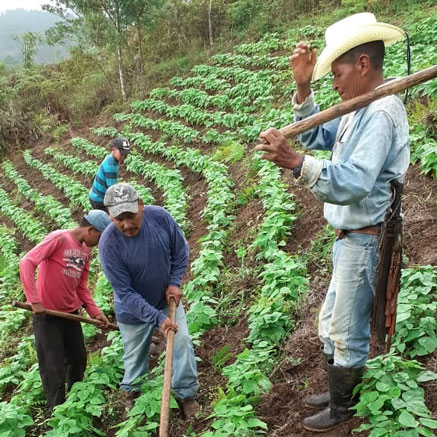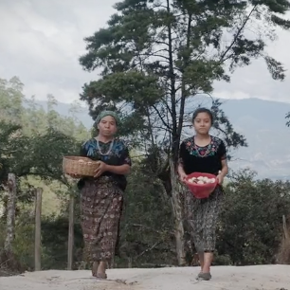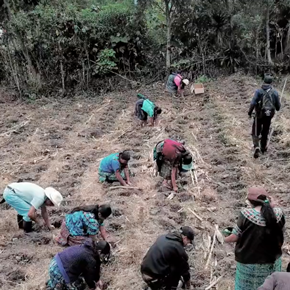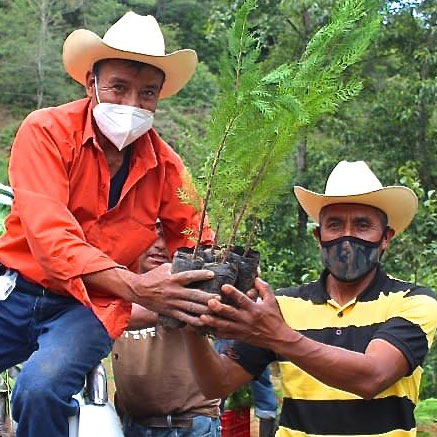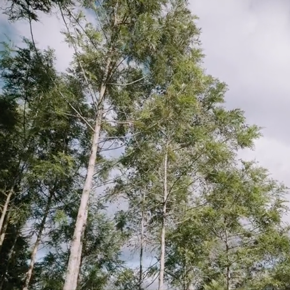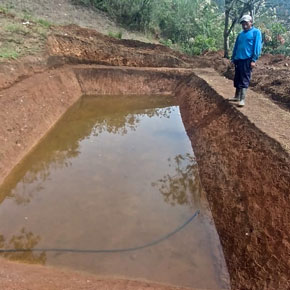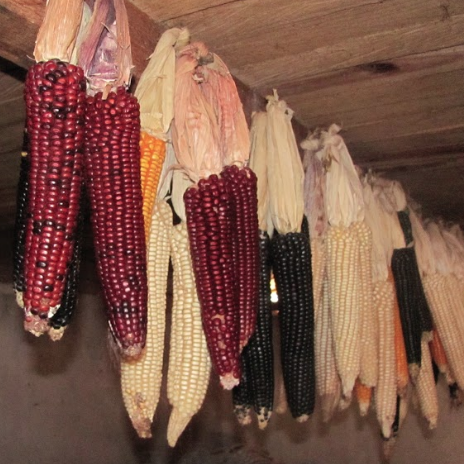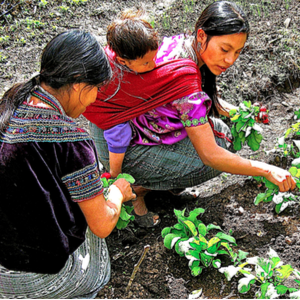
2020 Annual Report: Food Security
Vegetable Gardens
In addition to distributing food, EPIC’s program partners are promoting vegetable gardens. Soacha is a very poor community outside Bogotá, Colombia, where people fleeing violence have settled. Most residents depend on day labor and are food insecure. Creciendo Juntos had not worked promoting vegetable gardens before Covid, but they have now started 18 group gardens averaging 9 participants each. The families will be sharing the produce. In addition, 16 families now have their own home gardens.
San Lucas Toliman is another place where EPIC’s involvement had not previously included promoting gardens. In the last months, 28 families have started home vegetable gardens. There are also 3 group gardens with a total of 15 families participating.
La Semilla del Progreso in Honduras and the Baja Verapaz: Sustainable Agriculture program in Guatemala have long successfully promoted vegetable gardens in the 38 communities where the 2 programs are working. In each program, almost all of the participants have home gardens – approximately 300 family gardens. La Semilla del Progreso participants also have 8 communal gardens, each with 15 to 18 members sharing the work and the harvests.
Increasing Sustainable Food Production
Laureano Jacobo of La Semilla del Progreso in Honduras and the in Honduras says that after each disaster to hit Central America, there have been serious food shortages. He tells people, “Plant, plant, plant – everywhere possible!” La Semilla has made this the focus their work. One way that EPIC’s sustainable agriculture programs are increasing food security is by increasing farming’s resiliency to climate change. Families are advised to plant both crops that like lots of water, and crops that do well with little. To increase the soil’s water holding capacity and fertility, EPIC’s programs promote using compost, heavy mulching, planting legumes, and crop rotation.
Water and soil conservation work can be done by farmers while social distancing. In a very draught prone area of Honduras, program participants captured water from two springs and constructed a large water reservoir. It will serve several families, but no more than 5 persons dug at a time. Other participants constructed small irrigation projects or dug conservation ditches on their own farms.
In July, the Baja Verapaz: Sustainable Agriculture program in Guatemala was able to distribute 13,250 trees for reforestation in 15 communities. The trees were donated to the program by the Guatemalan National Energy Institute (INDE). Because July was in the rainy season, and planting trees on your own farm can certainly be done while social distancing, the trees have now all been planted by the program’s participant farmers.


